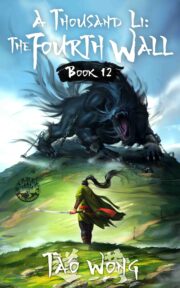Lovable Predictability: The Pleasures and Challenges of Writing a Children’s Fiction Series
by Alex Woolf
 “Why do we always have to reinvent the wheel?” my editor once asked me.
“Why do we always have to reinvent the wheel?” my editor once asked me.
When a new book is launched, it’s like introducing a stranger to a largely disinterested world. Potential readers know nothing about its characters or the kind of plot they might expect. Publishers are forced to spend a great deal of money on marketing to give the book a comforting, pseudo-familiar feel. The title and cover design will be reminiscent of other, similar books that readers might already have enjoyed.
It’s therefore not surprising that what mass-market publishers really love is a series: the same characters reappearing again and again across a sequence of adventures. This is especially the case in my area: children’s and YA fiction. Young people are big fans of series. They love to revisit familiar worlds in the company of characters they know and care for. There’s also the fact that many kids enjoy collecting things, be they toys, stickers, fridge magnets or book series. Publishers play up to this desire by creating spine designs that look great when lined up on a shelf.
Fundamentals and particulars
Creating a series won’t come naturally to every children’s or YA author. Many want to tell self-contained stories that are resolved within the scope of a single adventure: good triumphs over evil, the villains die, the protagonists fall in love or go their separate ways. To write a series requires a different kind of mindset. The first thing you need to do is separate out the fundamental or canonical aspects of a story from the particular ones. Fundamental aspects include character, relationships and often setting. Particular aspects are, broadly speaking, to do with plot.
While the plot can and should change from book to book, the fundamentals must remain unchanged, or barely changed, by the end of each adventure. So, for example, it would be very unusual for any of your major characters to die or get married or decide to move to Mars. If there are arcs to their stories, they need to be gradual ones that evolve over the course of the series. If your main characters face challenges, they can be as tough and existential as you like, but they can’t fundamentally change them.
A question of character
At the heart of every successful children’s series is a set of memorable characters. For characters to win and retain the love and loyalty of readers over a lengthy set of books, they need to be relatable, heroic and often a little quirky. They should have both strengths and flaws, goals that drive them, and losses and regrets that torment them. They may be larger than life, but also recognizably human. This depth of characterization can generate not just pathos, but also humor, for example from the repetition of mistakes or quirky sayings: series tend to be replete with in-jokes and running gags.
Incidentally, writing a series can take years, with big gaps between each installment. It’s therefore really important for authors to keep a ‘bible’ of their characters’ physical appearance, traits, and mannerisms, as a reminder. You do not want to receive a letter from an eagle-eyed reader to say that a minor character’s eyes were a different shade back in Volume 2.
Authors of children’s series need to focus not only on characterization but also relationships. Nothing makes a series really fizz like unresolved tensions between characters. This could be to do with unspoken romantic feelings, or a clash of styles or temperaments or morals or any combination of these. And of course, since not much changes from book to book, readers can look forward to more of the same crackling tension in the next installment.
One of the great joys of children’s series fiction, for both writers and readers, is testing your characters in each new adventure by throwing daunting challenges and threats their way. By the second or third title, readers will already be familiar enough with the characters’ strengths and weaknesses and will want to see these tested to, or almost to, destruction. These moments of high drama can even form the end of a title – the famous cliff-hanger ending, which is unique to series fiction.
In one bound, he was free…
This brings me to another issue: predictability. It’s a series, so of course your protagonist is going to survive, right? In that case, where’s the suspense? Well, it’s not quite as straightforward as that. To make a crisis moment as exciting as possible, you have to invite your readers to willingly suspend their belief that everything will turn out okay. If this kind of artifice wasn’t possible, then Dr. Who, Star Trek and a host of other series could never work. And sometimes, without going the full George R R Martin, it’s worth killing off a character or two, maybe a hero’s sidekick or loved one, just to reinforce the point that nothing can ever be entirely ruled out.
Knowing when to say goodbye
Finally, with any children’s series, however successful, authors need to know when to bring things to a close. If they go on too long, they risk experiencing the anguish of sliding sales as readers desert their once popular creations. Often it’s the publishers who are guilty of trying to milk a successful series beyond its natural lifespan, while authors, on multiple-volume contracts, have no choice but to oblige. They end up writing sequels that are increasingly repetitive, dull or absurd – ‘jumping the shark’ in other words.
Ideally, authors will be able to resist such commercial pressures and allow a series to conclude naturally and satisfyingly. The best advice is to let their characters take the lead on this. They will be able to tell the author better than anyone when it’s time to call it a day.
•••
Alex Woolf has written around 150 books, mostly for children and young adults, which have sold around the world and been translated into over a dozen different languages. He is the author of seven fiction series, including Chronosphere, a time-warping trilogy, Iron Sky, a steampunk saga, and Time Detectives, now on its sixth title. His horror novel Soul Shadows was shortlisted for the 2014 RED Book Award.
Alex is also the co-author of the comic novel, Kitten on a Fatberg (Unbound). As a reader of this blog, you can pre-order Kitten on a Fatberg for a 10% discount – just quote promo code KITTEN10


